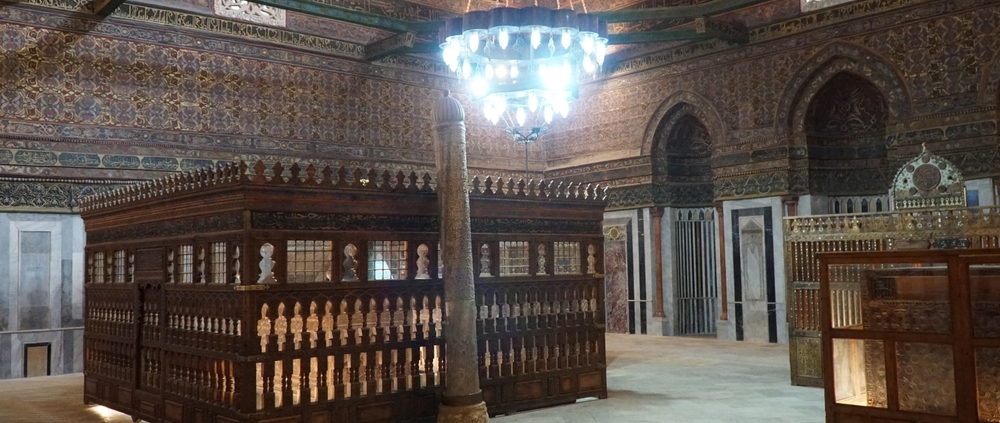What Did Imam Shafi‘i Say About the Shi‘a?
Shafi'i Fiqh
Answered by Shaykh Irshaad Sedick
Question
I’ve read about his sympathy for the Family of Rasulullah (Allah bless him and give him peace) and his love for both Abu Bakr (may Allah be pleased with him) and ‘Ali (may Allah be pleased with him). What were Imam Shafi‘i’s views on the Shi‘a?
Answer
In the Name of Allah, the Most Merciful and Compassionate. May Allah alleviate our difficulties and guide us to what pleases Him. Amin.
Imam Shafi‘i (Allah have mercy on him) is a descendant of, loved, and respected the Ahl al-Bayt (family of the Prophet, may Allah bless him and give him peace, and be pleased with all of them). He praised them in several lines of poetry attributed to him.
Imam Shafi‘i and many of the Imams of traditional Islam were also relentlessly critical of some extreme sects, their heretical beliefs, and practices. The question is, therefore, more complex than it may seem, and Allah knows best.
Who Are the Shi‘a?
Contemporary sectarian conventions often overlook the complexities contained within oversimplified names such as Sunni or Shi‘i. Various theological groups fall within the broad spectrum of the term “shi‘i”. Added to that, the fact that these groups were in their developmental infancy, while others did not yet exist, makes it challenging to address “what Imam Shafi‘i said about the Shi‘a”.
Imam Shafi‘i and the Ahl al-Bayt
Some, for example, mistakenly think that Sayyidina ‘Ali, Fatima, Hasan, Husayn, the Ahl al-Bayt (the family of the Prophet) (Allah bless him and give him peace and may He be pleased with them all), and those who love them, are the “Shi‘a”. All traditional scholars, including Imam Shafi‘i, and the overwhelming majority of Muslims love, respect, and pray for all of them.
The following lines of poetry, attributed to Imam Shafi‘i, demonstrate his profound love for the Ahl al-Bayt and his resentment of the idea that loving them amounts to heresy.
In gatherings where Ali is recalled with grace,
And his offspring, and Fatimah, the pure in grace.
Some may say, “Move on, this topic’s not for us,”
For this is a tale of those deemed Rafidi thus.
I absolve myself to the Most High, from some men,
Those who see Rafd as love for Fatima’s kin. [Shafi‘i, Diwan]
[Rafd -explained below]
Heretical Sects and Beliefs
Undoubtedly, extreme heterodox beliefs and practices that are incongruent with the Quran and Sunna are espoused by some of the sects ascribed to Shi‘i theology. These heretical groups are often collectively referred to by the scholars of Islam as the “Rafida / Rawafid” (lit. rejectors or rejectionists) or the ghulat min al-shi‘a (the excessive shi‘a). [‘Itr, Manhaj al-Naqd]
About such groups, one may find many statements, opinions, and legal positions expressed by leading traditional scholars in every era, including Imam Shafi‘i (Allah have mercy on him).
Harmala Ibn Yahya (Allah have mercy on him) reported: “I heard Shafi‘i say, ‘I have not seen anyone among the followers of desire bear more false witness than Rafida.’” [Razi, Adab al-Shafi‘i wa Manaqibuhu, p. 144]
Buwayti reported: “I asked Shafi‘i, ‘Should I pray behind a Rafidi?’ He said, ‘Do not pray behind a Rafidi, a Qadari, or a Murji’i.’ I asked, ‘Describe them for us.’ He said, ‘Whoever says faith is mere speech, he is a Murji’i. And whoever says that Abu Bakr and Umar are not two rightful caliphs is a Rafidi. And whoever attributes will to himself alone, he is a Qadari.’” [Harawi, Dham al-Kalam wa Ahlihi, Vol. 4, pp. 307-308; Dhahabi, Siyar A‘lam al-Nubala, Vol. 10, p. 31]
Dealing With Sectarianism
Please visit: How to deal with sectarian differences.
Shaykh Faraz Rabbani (Allah preserve him) said, “My advice is to focus on what benefits you; learn your faith and practice soundly; keep away from sectarianism and polemics; and maintain good opinion and good relations with all people–especially fellow Muslims, even if we may disagree with them–with principle, good character, and wisdom.” [SeekersGuidance]
I pray this is of benefit and that Allah guides us all.
[Shaykh] Irshaad Sedick
Checked and Approved by Shaykh Faraz Rabbani
Shaykh Irshaad Sedick was raised in South Africa in a traditional Muslim family. He graduated from Dar al-Ulum al-Arabiyyah al-Islamiyyah in Strand, Western Cape, under the guidance of the late world-renowned scholar, Shaykh Taha Karaan.
Shaykh Irshaad received Ijaza from many luminaries of the Islamic world, including Shaykh Taha Karaan, Mawlana Yusuf Karaan, and Mawlana Abdul Hafeez Makki, among others.
He is the author of the text “The Musnad of Ahmad ibn Hanbal: A Hujjah or not?” He has served as the Director of the Discover Islam Centre and Al Jeem Foundation. For the last five years till present, he has served as the Khatib of Masjid Ar-Rashideen, Mowbray, Cape Town.
Shaykh Irshaad has thirteen years of teaching experience at some of the leading Islamic institutes in Cape Town). He is currently building an Islamic online learning and media platform called ‘Isnad Academy’ and pursuing his Master’s degree in the study of Islam at the University of Johannesburg. He has a keen interest in healthy living and fitness.
